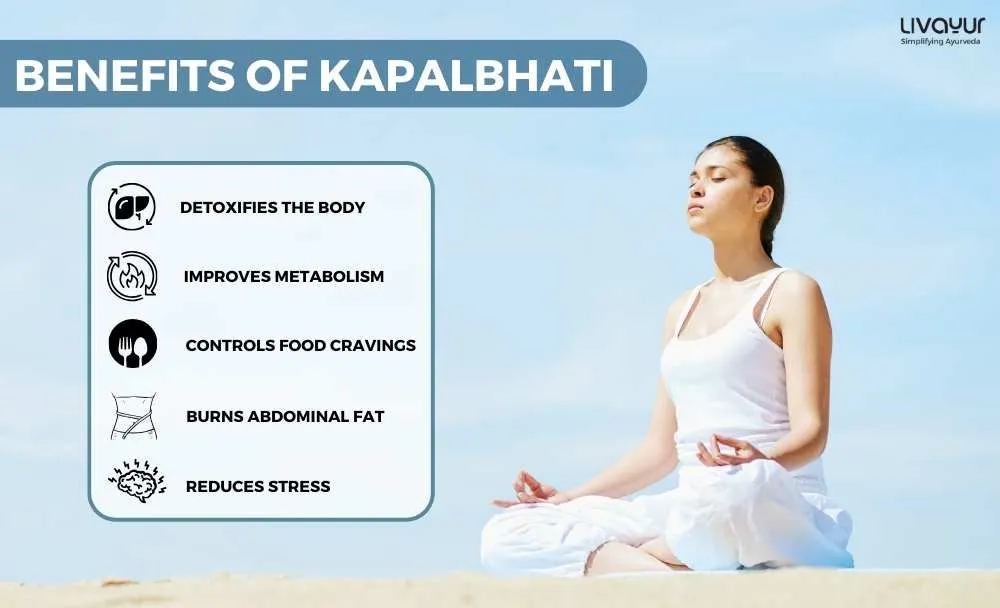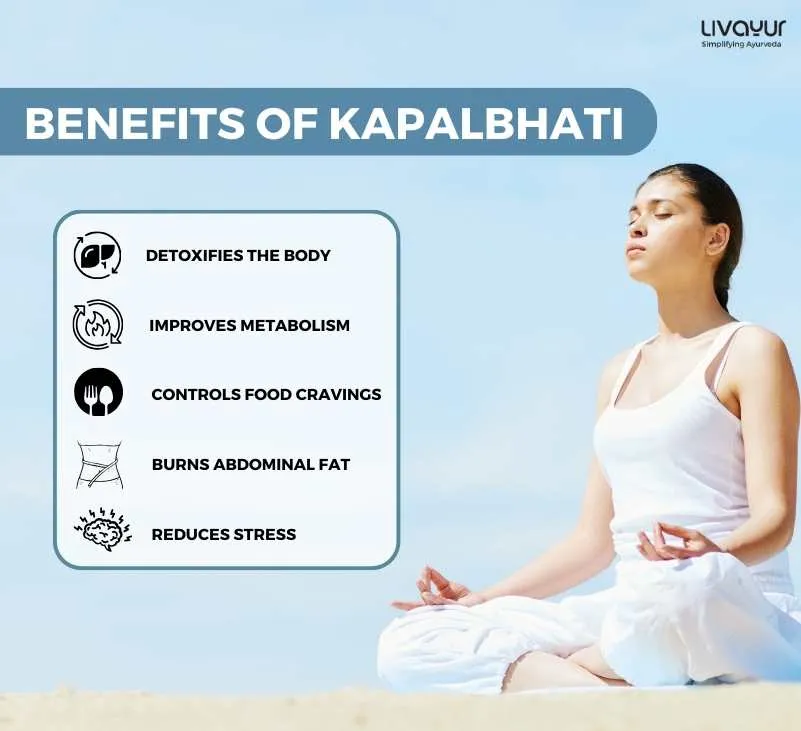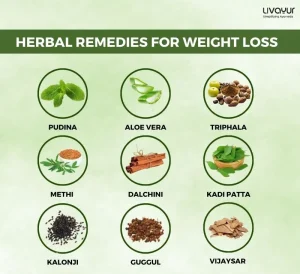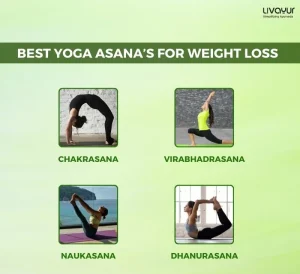
Pranayamas are ancient breathing techniques that offer many health benefits to the body and mind. They are a crucial component of Yoga and are considered one of the best tools for managing several diseases and health problems. They are also highly effective in improving mood and longevity. One such Pranayama is Kapalbhati Pranayama, well known for the kapalbhati weight loss benefits.
What is Kapalbhati Pranayama?
In Sanskrit, Kapal means ‘skull’ and Bhati means ‘to shine. Kapalbhati Pranayama is a Yogic breathing technique that comes with numerous kapalbhati benefits. This breathing exercise helps to strengthen the chest, cleanses abdominal organs, and boosts the circulation and nervous systems.
What Are The Kapalbhati Pranayama Benefits For Weight Loss?
1. Detoxifies the Body
One of the Kapalbhati benefits is that it helps to remove harmful toxins or Ama from the body, especially the liver, which is responsible for weight gain.
2. Improves Metabolism
Regular practice of this Pranayama helps stimulate the functions of endocrine organs and increases the metabolic rate. A fast metabolism helps rapidly burn calories and fat while converting food into energy.
3. Controls Food Cravings
Another very notable Kapalbhati weight loss benefits is that it also increases the levels of serotonin in the body. Serotonin is the hormone that helps control food cravings and reduces appetite, thereby keeping you away from fatty food items.
4. Burns Abdominal Fat
The continuous inhalation and exhalation practised in Kapalbhati Pranayama help to strengthen your abdominal muscles, tone down your waist and burn the excess belly fat. Thus, if you wish to have a flat, trimmed belly, you can use this breathing technique to burn down stubborn abdominal fat. This obviously gives you an answer to the question, ‘does kapalbhati reduce belly fat’.
5. Reduces Stress
Stress is known to cause abnormal weight gain. This Pranayama helps to manage stress and aid in weight loss.
How to do Kapalbhati Pranayama for Weight Loss?

It is recommended to do this Pranayama on an empty stomach as the exercise will help burn the deposited fat. However, if you have taken a meal, it is advised to wait for 5 hours before practising this Pranayama to reap the maximum benefits.
The correct technique to do Kapalbhati Pranayama
- Sit comfortably with your back straight and your palms placed on the knees facing downwards.
- Bring your breathing in rhythm and then take a deep breath and exhale forcefully through your nostrils.
- While exhaling, make sure that you pull your stomach in towards the spine.
- Next, loosen your stomach muscles and automatically inhale the air.
- Again, exhale forcefully through your nostrils while pulling your abdominal muscles.
- Keep repeating this process several times. One set of Kapalbhati Pranayama consists of 15 rounds. Try to practice at least three sets as a beginner, and then keep increasing the time and frequency with practice.
More Benefits of Kapalbhati Pranayama
- It helps improve the health of many internal organs such as the pancreas, spleen, liver, intestines and kidneys.
- It helps to reduce blood sugar levels in the body and manage diabetes.
- It is also highly effective in treating respiratory disorders such as asthma, sinusitis, etc.
- It helps to improve mental health and manage stress, anxiety and depression.
- It is also known to boost digestion and treat various gastrointestinal disorders such as constipation, acidity, etc.
- This Pranayama purifies the blood and boosts the circulation of blood and oxygen in the body.
- It also improves immunity and helps prevent many diseases.
Precautions
This Pranayama is usually safe for everyone and offers myriad health benefits, including weight loss. However, avoid practising Kapalbhati Pranayama if you suffer from any heart ailment or have high blood pressure.
The Takeaway
Kapalbhati Pranayama is one of the best breathing exercises to shed excess weight and boost metabolism in the body. It offers many more health benefits as well. You must include this breathing exercise in your exercise routine.

























